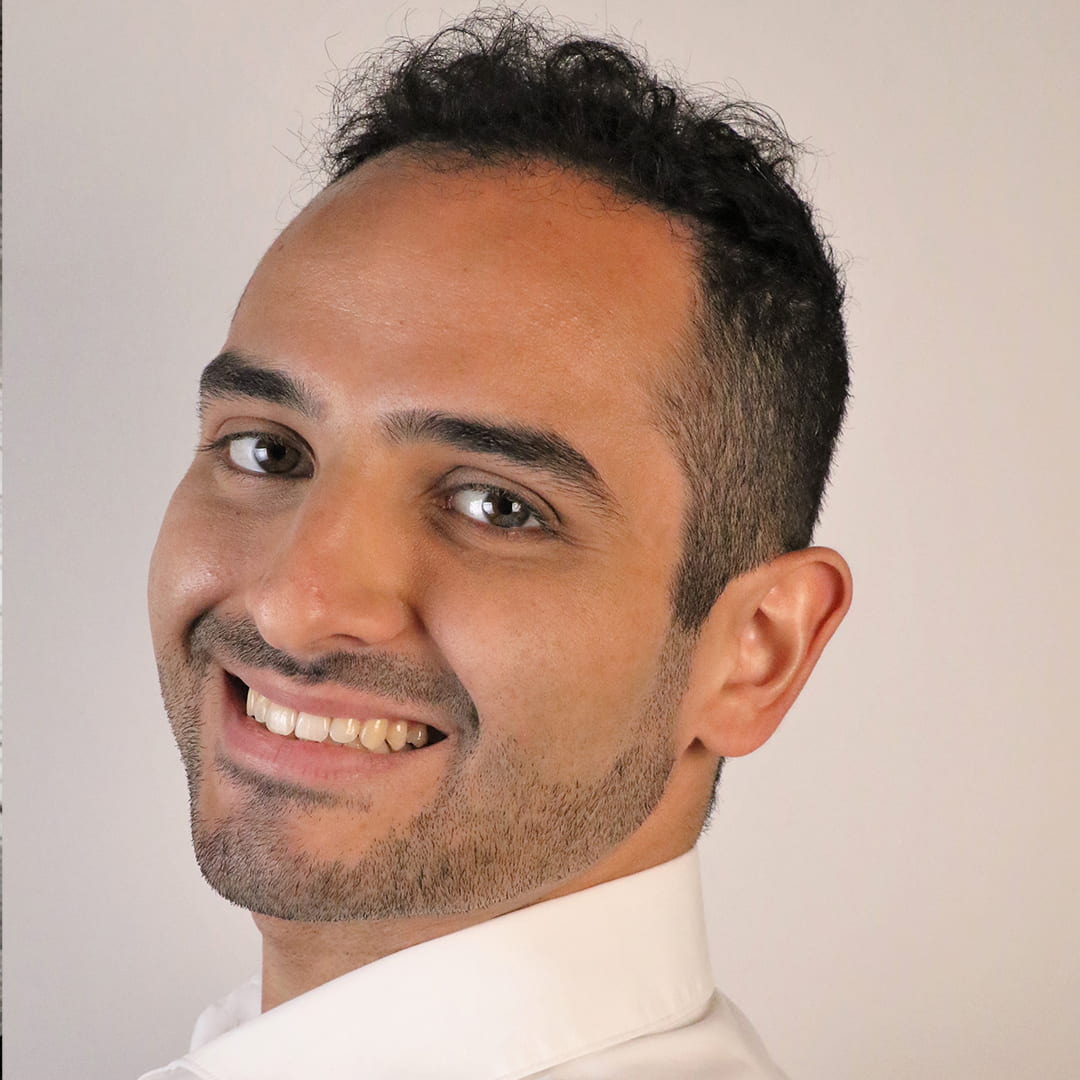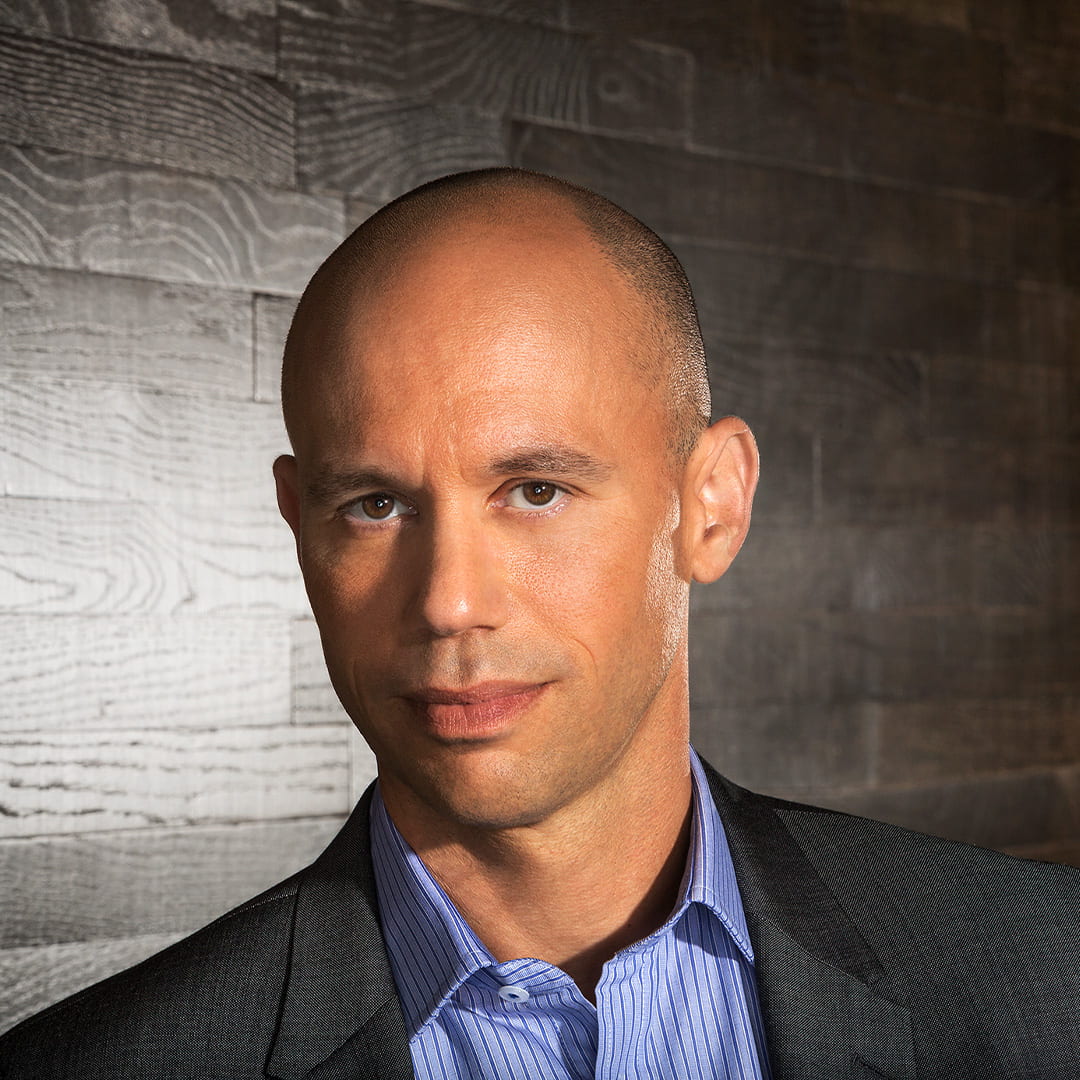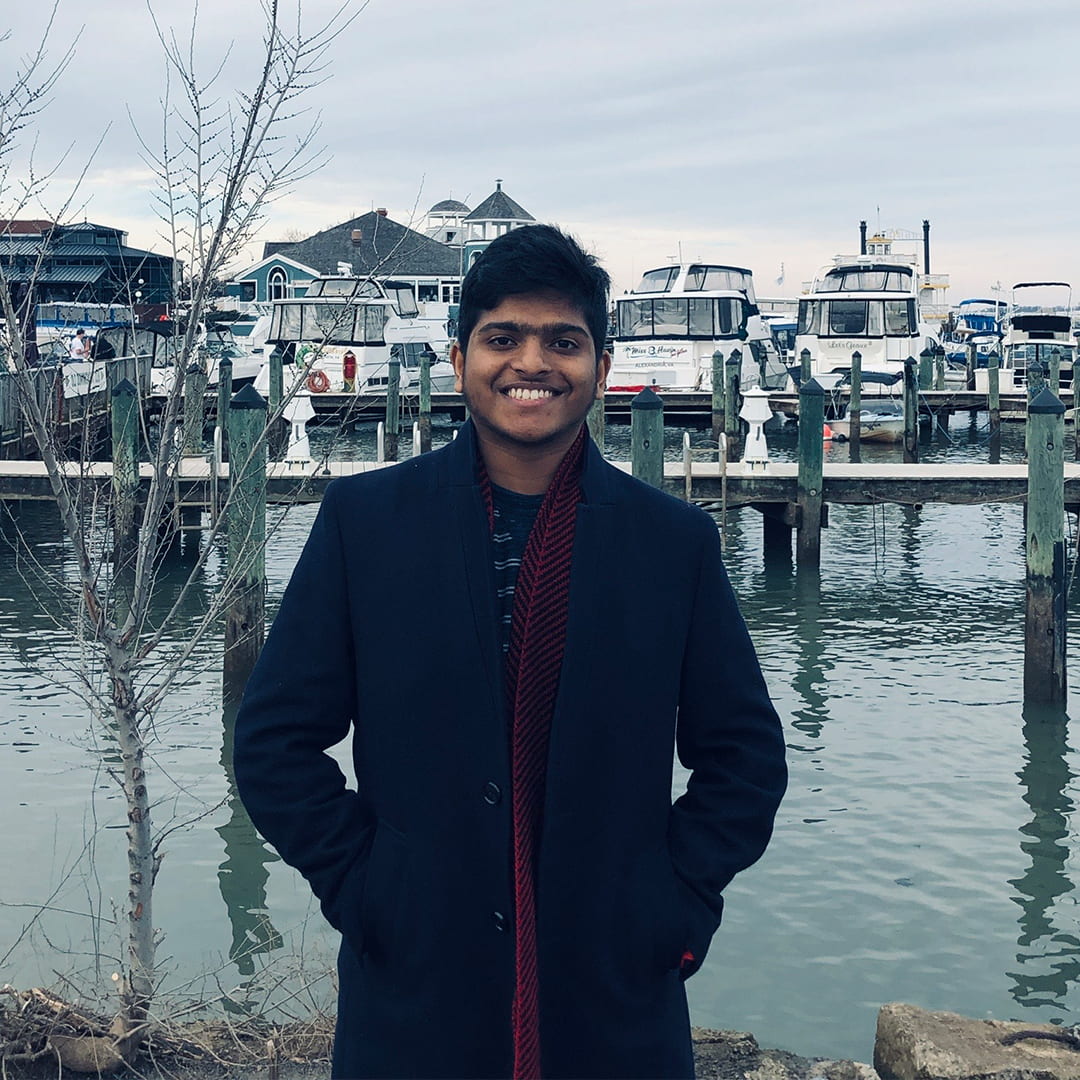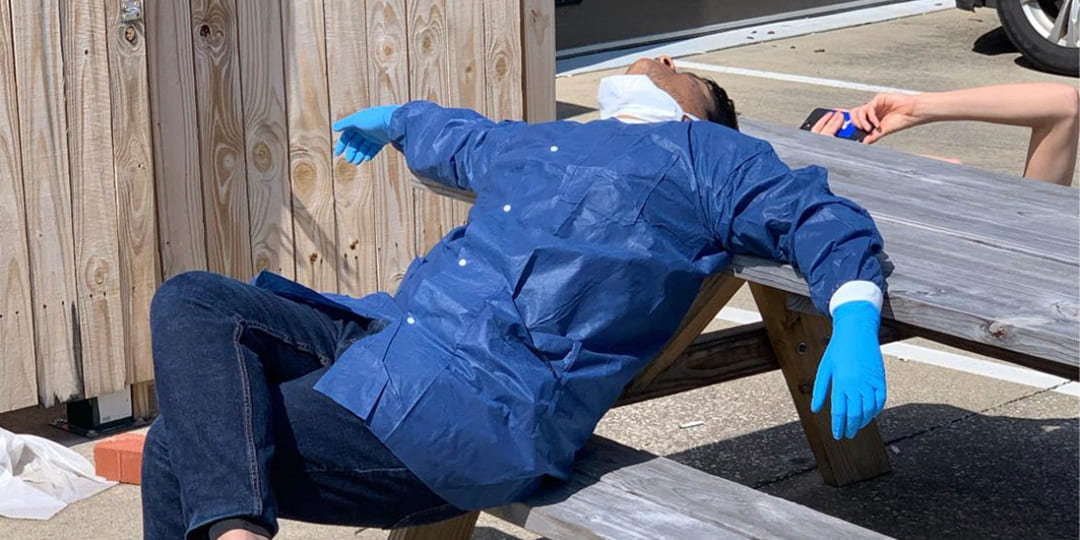During the coronavirus pandemic, alumni have come to the aid of their communities—in their hometowns, across the country and around the world. Read about a few of the many ways Colonials are impacting lives and inspiring hope.
Anthony Arias: An EMT on the Frontlines
As a volunteer emergency medical technician (EMT) in Bergen County, N.J., Anthony Arias, BA ’11, has responded to a gamut of calls from elderly people in distress to drug overdoses to traffic accidents. A financial services entrepreneur and Columbian College of Arts and Sciences National Council member, Arias understands that every time he climbs into an ambulance, he faces a dangerous uncertainty. “Until you arrive at the scene, you don’t know what you’ll find,” he said.

And that was never been more true than during the COVID-19 crisis. Around the country, already taxed EMT’s have faced dire equipment and manpower shortages. Still, Arias always answers the bell for his 12-hour shifts. “This is my community—where I have family, clients, a business,” said the former economics and history major. “This is a way for me to give back and help out in their worst hours.”
Arias first received his EMT training while attending GW and now volunteers with a private ambulance organization, providing assistance as needed. “When I get to a scene, I identify the situation, stabilize the patient and get them to a hospital fast,” he explained.
As a crew chief, it’s Arias’ job to access a potential COVID case, entering a patient’s home by himself, checking symptoms and deciding whether to transport someone to an ER. He doesn’t think about the dangers to himself—even as his masks and safety supplies have dwindled. Instead, he focuses on the patients in his ambulance, many of whom are elderly and alone.
“There’s a lot of panic and confusion but I try to bring a calming presence to every call,” he said. “We see people who feel they have no one to turn to. I let them know that there’s someone here for them.”
“This is my community—where I have a family, clients, a business. This is a way for me to give back and help out in their worst hours.”
— Anthony Arias
Aaron Kwittken: Communicating in a Crisis

In times of crisis, millions of people turn to nonprofits organizations for basic needs, from health care to food and shelter to a comforting shoulder.
But what happens when it’s the nonprofits themselves who need a helping hand?
During the COVID-19 crisis, many nonprofits found their already strained budgets, staff and resources stretched to the breaking point. Worried simply about keeping their lights on, many have been forced to put all but the most vital services on the backburner.
Aaron Kwittken, BA ’92, is trying to help. The founder and CEO of KWT Global, a brand strategy and public relations agency, he offered pro bono crisis communications aid to nonprofits struggling to stay in touch with donors, volunteers and the people who rely on their services. They include a charity that supports young people with cancer and a nonprofit that provides free legal services to women facing challenges like workplace discrimination and domestic abuse. His firm also produces a podcast highlighting nonprofit efforts.
“A lot of nonprofits don’t have professional communicators on staff,” said Kwittken, who majored in psychology and speech communication and recently joined the School of Media and Public Affairs’ National Council. “They’re very good at providing services. They’re very good at fundraising. But they may lack those extra communications resources, such as messaging guidance or determining the best ways to convey difficult decisions like cancellations. That’s where we can step in.”
At the outset of the crisis, Kwittken advised nonprofits to continue communicating with their audiences—even if their own strategy remains uncertain. “Don’t go dark,” he said. “Just because you don’t have all the answers yet doesn’t mean that you shouldn’t communicate.” Still, he warned them not to clutter email boxes with repetitive information like hand-washing tutorials. Instead, Kwittken recommended sending specific messages about crucial actions—whether reminding people not to freeze their memberships or asking donors for much-needed support. “Send immediate calls-to-action that are unapologetic and straightforward,” he said.
Kwittken stressed that nonprofit services to vulnerable people are more important now than ever. And he’s hoping that the coronavirus crisis opens people’s eyes to their work. “I think we will come out on the other side of this with a heightened sense of gratitude and appreciation.”
Sathya Prakash Harihar: Long Days in the Laboratory
As the coronavirus first emerged across the United States, Sathya Prakash Harihar, MFS ’19, saw his life turned upside—personally and professionally.

At 6:30 a.m., he began his daily shifts as a laboratory scientist with Solaris Diagnostics in Lexington, Ky. He pulled goggles over his eyes and covered his mouth and nose with a mask. He donned a hairnet, a lab coat and two pairs of gloves that he duct-taped to his sleeves so not even a sliver of skin was exposed. Sixteen hours and as many as 900 coronavirus tests later, Harihar shed his protective gear and hurried home to grab a quick bath and a rushed dinner. When his alarm rang before sunrise the next morning, he was right back at it again.
“It’s exhausting—that’s for sure,” said Harihar, a forensic molecular biology major who started at Solaris in March and, by April, was testing potential coronavirus samples virtually around the clock. “It’s mentally draining because we have to concentrate intently on each sample. But a biologist’s work is physically taxing too. I’m on my feet, moving around the lab, bending over samples. By the end of the day, I feel like I’m an old man with back pain.”
Prior to the COVID-19 crisis, Solaris’ 35 employees—including technicians, database engineers and Harihar’s analysis team of seven forensic scientists—examined about 300 cases a day, mostly suspected respiratory diseases like influenza. After the virus outbreak, delivery trucks pulled up to their loading dock each morning with more than 1,000 COVID tests from hospitals, nursing homes and health departments around the country. Harihar and his colleagues extract DNA from swabs, apply chemical reagents that target the virus and use a cutting-edge machine called a Real Time-Polymerase Chain Reaction to test 100 samples at once. About 2 to 3 percent are positive.
Harihar isn’t concerned about the dangers of handling the virus. He is more worried about his parents in India, with whom he Skypes during his few off-hours. “What I’m doing is miniscule. There are many people doing a lot more,” he said. “But I’m happy my work can inform medical decisions and maybe help people around the country.”
Main Image: Laboratory scientist Sathya Prakash Harihar, MFS ’19, takes a break during his 16-hour shift examining COVID test samples.


